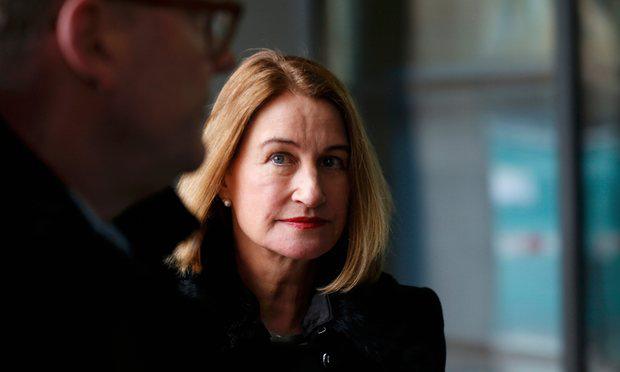|
If child abuse were a disease, we’d see urgent action. Our culture must change
By Sue Berelowitz
The resignation of Lowell Goddard as chair of the official inquiry into historical child sex abuse is an opportunity for us to now focus on the really critical issue. For the inquiry to be credible the whole purpose must be to learn the lessons from past institutional failures so that children now and in the future are effectively protected. The inquiry I chaired into child sexual exploitation in gangs and groups found extensive evidence of professionals and institutions refusing to see the signs and hear the voices of abused children. This was institutional denial by those whose job is to protect children from rape and sexual violation. There is a dangerous belief that the sexual abuse of children is a “historical” phenomenon, that it’s about a few rotten apples in high places or recognised positions of power. Let’s look at the reality. The new crime survey from the Office for National Statistics (ONS) tells us that 11% of all females and 3% of all males aged 16-59 have disclosed that they were sexually abused as children. This translates into at least 600,000 girls in England today who are, have been or will be victims of sexual abuse by the time they are 18. The figure for boys would be at least 150,000. These figures are profoundly shocking and yet I am not in the least surprised by them for they fit the known evidence, including that most people were abused by someone known to them such as a friend, acquaintance or family member. David Finkelhor, probably the world’s most eminent researcher on child sexual abuse, has gathered evidence in the US that as many as one in four females is a victim of child sexual abuse. If true for the UK, this would equate to 3 million of the 12 million children in England. Frankly, whichever figure we go with, if this was a communicable disease such as measles or rubella, mass inoculations and huge public health campaigns would be the order of the day. But it’s not – it’s the rape and violation of children, so silence and turning away, wholly or partially, are the responses. Understanding and addressing denial at the institutional, social and political levels is what the inquiry should be focusing on. It should identify the systemic issues that contribute to and perpetuate a climate and culture in which hundreds of thousands of children can be and are raped and violated. The inquiry presents an important opportunity to counteract the shame and stigma of sexual abuse – two key factors that contribute so powerfully to the silencing of victims. It should do this by holding public sessions in which the inquiry, on behalf of the nation, bears witness to the suffering endured by those who were victims. The focus of these sessions should be the institutional failures to protect rather than the naming and shaming of alleged perpetrators, and they should serve the dual purpose of public acknowledgement of terrible wrong done and lessons to be learned. Holding the sessions in public would give a powerful message that being a victim is not shameful or stigmatising and would help to give today’s victims the strength to speak out. Two years into the inquiry, children continue to be abandoned to their fate and their abusers by persistent and continuing institutional failures, although the police must be given credit for now treating this crime with the seriousness it deserves. Compare the figures for the ONS with the numbers of victims of sexual abuse identified by local authorities. At any one time approximately 48,000 children in England have a child protection plan on the grounds of one of the four categories of physical, emotional, sexual abuse or neglect. Of these children approximately 5% have a plan on the grounds of sexual abuse. This amounts to fewer than 2,500 children across the whole of England. I recently told a local authority what the likely real scale of sexual use is in their area as opposed to the minuscule numbers identified, using best case scenario prevalence data. They were horrified and said they could not begin to face up to the reality as they lacked the resources and skills to do so. Turning away is not the answer. Placing the burden of disclosure on the victims is not the answer. This is the time to boldly face the reality of sexual abuse, to develop a national strategy to change culture and practice in our institutions, our mores, our way of life, so that we honour our obligations to children to keep them safe and free from harm. Children cannot wait five or 10 years for this inquiry to conclude. A new chair gives us the opportunity to get this right. The lessons from the inquiry need to be shared urgently and applied now.
|
.
Any original material on these pages is copyright © BishopAccountability.org 2004. Reproduce freely with attribution.
